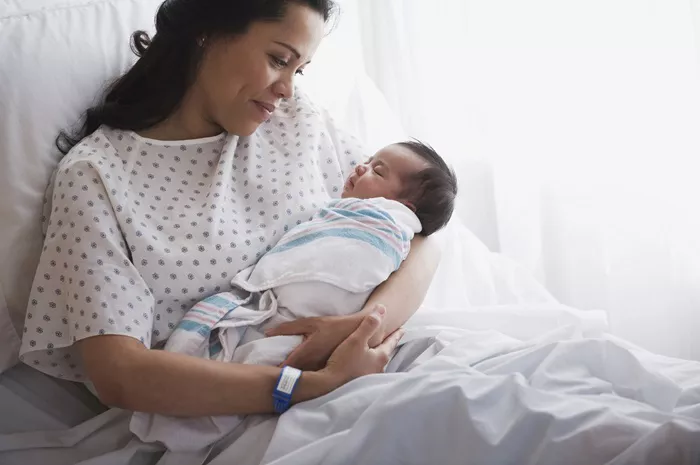Child protection workers in South Australia have repeatedly breached government policy when removing newborns from a public hospital, according to leaked documents. These actions have been described as “unethical, distressing, and uncomfortable,” raising significant concerns.
Confidential Reviews Reveal Unethical Practices
ABC News has obtained two confidential reviews from the Southern Adelaide Local Health Network (SALHN). These reviews detail how child protection workers have recently removed newborns from Flinders Medical Centre (FMC), one of Adelaide’s key maternity hospitals.
While the Department for Child Protection (DCP) has the authority to remove children if their welfare is at risk, the methods used to take newborns from their mothers shortly after birth have come under increased scrutiny. This follows a series of ABC News reports highlighting these issues.
One review specifically mentions the removal of an Aboriginal newborn from his mother’s hospital room within the last 18 months. The mother had received antenatal care at FMC and was assessed as having a “high child protection risk.” The review reveals that child protection workers, accompanied by five SA Police officers, arrived at the hospital one day after the mother was admitted for labor induction. They were concerned about the father’s potential reaction to the removal.
Despite their concerns, the review states that the father was not present in the hospital at the time. The Aboriginal liaison officer (ALO) support staff, who should have been present, were not informed of the planned removal and therefore could not support the family.
The review also highlights that the baby was taken from the mother’s room before the removal was authorized under Section 41 of South Australia’s Children and Young People (Safety) Act. This was in direct violation of SA Health policy, which states that “infants are not to be separated from their mother (other than for medical reasons) until Section 41 has been invoked.”
Policy Breaches Deemed ‘Common Practice’
The second SALHN review, completed in August of the previous year, reveals that breaching this policy has become “common practice” among child protection workers. The review analyzed the removal of 25 babies between January 2022 and February 2023. It found that 20 percent of the infants were “well” but “absent” from their families when the removal notices were served.
Staff reported that it was common practice to remove healthy babies from their mothers’ rooms before Section 41 was invoked, often at the request of the DCP. This practice was described by staff as “unethical, distressing, and uncomfortable.” Some midwives were even reportedly instructed by the DCP to prevent mothers from breastfeeding their babies before Section 41 was invoked.
Staff members expressed concern over the lack of transparency in these situations, which they described as a moral dilemma. They often knew about the planned removal before the parents did, causing distress in their roles as caregivers.
Immediate Action and Recommendations
In response to these concerns, an email was sent to all SALHN staff in early 2023, instructing them to “immediately stop” separating babies from their mothers before Section 41 was invoked. The review made several recommendations to improve how health staff manage the removal of babies from hospitals. These included increased training for nurses and midwives and the establishment of a “culturally appropriate” Aboriginal and Torres Strait Islander birthing program.
SALHN Chief Executive Kerrie Freeman stated that the health network had “increased collaboration” with an Aboriginal health provider and was “exploring” a specific Aboriginal birthing program with a culturally safe model of care. She also confirmed that staff had received additional training, and a separate policy review was expected to be completed by the end of the year.
Government Promises Improvements After Independent Review
Child Protection Minister Katrine Hildyard ordered an independent review into the removal of newborns from hospitals earlier this year. The two-month inquiry, led by public health consultant Katina D’Onise, found that 202 South Australian newborns were removed from their mothers within one month of birth in 2022 and 2023.
The review also revealed that the DCP had failed to inform some families of its intention to remove babies at birth and did not record official reasons for withholding prior warning.
In response, Minister Hildyard ordered her department to provide additional training to high-risk infant workers and to offer all families subject to a “substantiated” child protection concern the opportunity to participate in family group conferencing. She also mandated that Aboriginal consultants be involved in cases involving First Nations families and commissioned the Australian Centre for Child Protection to conduct national research on the issue.
A department spokesperson emphasized that the safety and welfare of vulnerable infants remain the highest priority. The department stated that decisions to place a baby into care are always made as a “last resort” to ensure the child’s safety. Efforts are being made to increase the involvement of Aboriginal consultants, improve communication and practices with SA Health, and expand family group conferencing to reach more families.
These actions are part of a broader effort to address the concerns raised by the reviews and ensure that child protection practices align with ethical standards and government policies.


